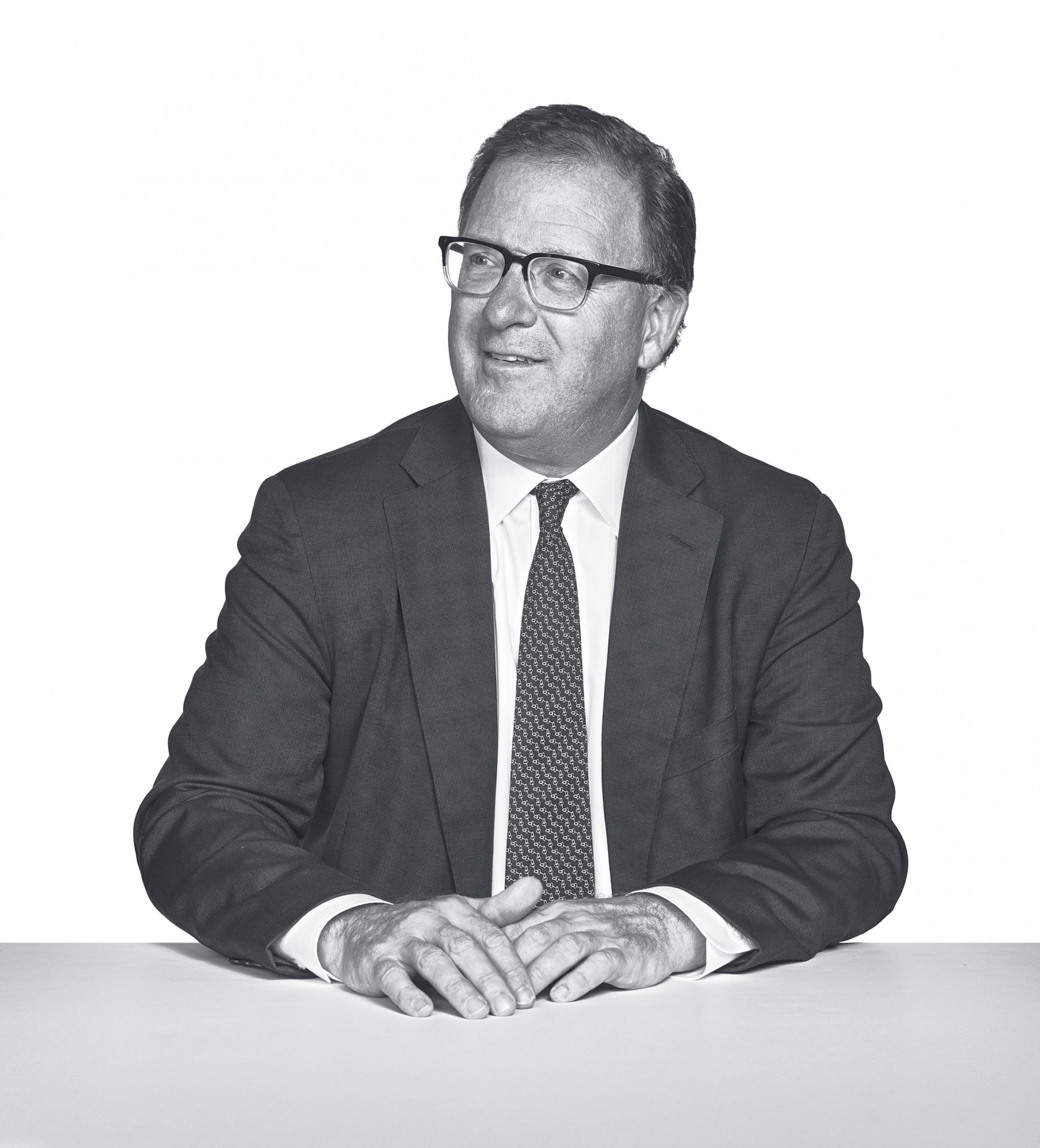In a polarized Washington, Robert Doar cuts an interesting bipartisan figure. He spent his early years in DC, where his father, John, faced down violence as the point man for civil rights in the Kennedy and Johnson Justice Departments. The 58-year-old worked for the moderate-liberal Washington Monthly and on former Maryland lieutenant governor Kathleen Kennedy Townsend’s first congressional campaign in 1986. The Princeton basketball player was a key figure on welfare policy for both New York state and NYC, where he became known nationally as a vocal proponent of work requirements and ran the city’s mammoth Department of Human Resources. This month, he takes over as head of the American Enterprise Institute, the august conservative think tank on Massachusetts Avenue. He spoke with Washingtonian abut his ideological journey and the role of ideas in DC.
What do you see as your job as head of AEI?
To promote and celebrate the work of the great scholars we have here. If I do that well, then it won’t really be about what I say or what I think.
You’ve said that the organization is “nonpartisan, but we’re not non-ideological.”
Right. We’re completely independent of any political party, but we believe in free markets and free people and limited government. We have people from both parties, and we call them as we see them.
What is the role of think tanks in Washington when there’s so much rancor?
First thing we do is model efforts to bring people together. I’ve participated in efforts to bring bipartisan groups together. One was on the National Commission on Hunger. I helped write a bipartisan report on that. Then we did an AEI-Brookings report on poverty and opportunity with six right-of-center scholars and six left-of-center scholars. We’re still very active in advising and talking to members of both parties.
One thing that seems to me to be different than it was a long time ago is that politicians just don’t have any time to delve deep into hard issues, because they’re hustling for money.
You’ve been a great proponent of reality-based, evidence-based policymaking. That seems unusual in Washington.
Well, there are a few hopeful signs. Legislation passed last year that House speaker Paul Ryan and Senator Patty Murray cosponsored [to improve data collection]. Public policy is a combination of thousands of little actions that take place, and those actions add up to change sometimes.
But it’s said to be sort of a tough time for centrists like your old boss [former New York City mayor] Michael Bloomberg. Are you despondent about that?
Well, let’s start with the Democrats. I was at something recently where someone I have great respect for, who is more associated with left-of-center philosophy, said to me, “You know, I’ve spent a lot of my life trying to describe why certain ideas that come from conservatives or Republicans are crazy, and now I’m spending all my time describing why ideas coming from the Democrats’ side are crazy.”
Mayor Koch used to always say, ‘I like the Mets, I like the Yankees.’ That’s how I feel about Washington and New York.
On the other side, President Trump challenged us on entitlement reform. I think we need to make some effort to reform entitlements. I’m not so sure President Trump does. Another was free trade. We believe in free markets and free trade, but we have to recognize that we haven’t completely persuaded the country of that, apparently. Immigration is another one. We have to have controls, but we’re generally ones who believe in the benefits of having labor move. I saw in New York City, in my own life, that immigration was a big element of the resurgence of New York, and then of America’s role in the world.
Does that complicate your job as a leader of this institution and also as a fundraiser? I mean, you’ve got people who are never-Trumpers and people who like him.
We want to nurture a really robust discussion of difficult challenges, and that may mean we have a little bit of disagreement.
You came down about five years ago from New York.
Right at the end of the Bloomberg administration. The people at AEI were looking to start a poverty-studies program, and I was finishing 19 years of working in social services in New York. I was born in and around Washington. My dad worked in the Department of Justice in the 1960s, so until I was seven, we lived here. Mayor Koch used to always say, “I like the Mets, I like the Yankees.” That’s how I feel about Washington and New York.
You mentioned your dad. Tell me about your ideological arc. Did you change over time? Did the times change?
Dad was a Republican from Wisconsin who happened to be a great leader as the representative of the federal government in the South during the civil-rights movement, and he mostly worked for Democrats in that capacity. Then he came back to be special counsel to the House Judiciary Committee during impeachment, as a Republican. He advised the entire committee.
I grew up in a world where we felt very strongly that there are some things the federal government should take a strong stance on. But all in all, he was more of a limited-government person. Of course, I grew up in New York City. That influenced me. Probably when I was younger, I was more liberal. But as I grew and listened and thought and observed and spent time at the Washington Monthly, which is kind of iconoclastic, in a way, I just moved more and more to the right.
I saw that when you got appointed to the Bloomberg administration, a councilman named Bill de Blasio had kind things to say about you. Then he would later do everything to undermine work requirements for welfare.
Yes, that’s all true. It was nice of him to say a nice thing.
Are you named after Robert Kennedy?
In part. He was someone my dad admired.
Do you like fundraising, by the way? Some people abhor it.
I’m competitive, so I like the challenge. I really believe in AEI. I don’t mind traveling.
Do you find that the corporate donors sort of understand that you’re there to do independent scholarship and you’re not there to deliver . . . .
I spend most of my time focusing on individuals, but everyone does understand that.
Are donors ever eager to have specific research conclusions? You’ve made it clear that’s not what happens.
Donors know they give to all of us and we do what we do and let the chips fall however they may.
How do you get the policy papers out there at a partisan time and get media bookers to read them?
I think you have to work in a credible and nonpartisan and empirical way. We testify before Congress and brief members of the executive branch. You have got to be willing to convert a research paper into an 800-word op-ed or 200-word blogs or even a 30-character tweet. You’re right that there’s a lot of noise among the players, but it’s also true that stuff does happen. Federal agencies issue directives. Legislation actually passes.
One ritual of Washington think-tank culture is the panel talk during the day.
We do events, and we like them. I enjoy them. We’ve live-streamed them, and we’ve put them on our website.
Who actually comes to these?
We get young Hill staffers, we get executive-branch officials, we get other academics, we get retired people, we get a few people who come in for the meal, which is always kind of funny. I like bringing the community in. I’d rather go to an AEI 10:30 seminar than sit all day reading my Twitter feed. That’s awful.
This article appears in the July 2019 issue of Washingtonian.



















